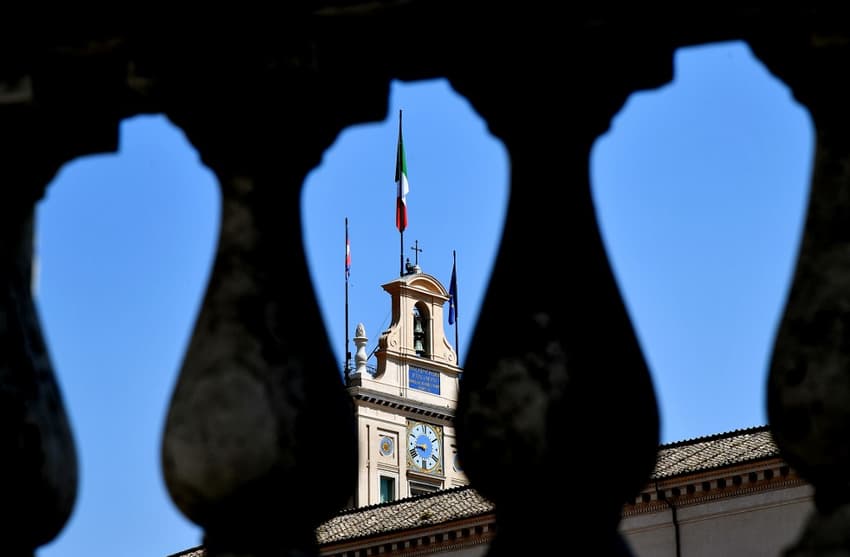Is this the last year Italy will switch to winter time?

The clocks go back in Italy this weekend - possibly for the last time.
The traditional changing of the clocks for winter time takes place this weekend. At 3am on Sunday, October 25th, the clocks will go back one hour, giving most of us an extra hour in bed.
But this could be the last time that Italy undertakes the annual autumn ritual.
In March 2019, lawmakers in the European Parliament voted by a large majority - 410 MEPs against 192 - in favour of stopping the changing of the hour from 2021.
However, following the vote, the parliament specified that each EU member state would decide whether they would keep summer time or winter time.
While some countries have already said they favour scrapping the hour change, including France, Italy hasn't yet taken a definite position.
In a Europe-wide survey in 2018 some 80 percent of Europeans voted in favour of stopping the clock changes, with most people appearing to prefer to stay on summer time rather than winter time.
The EU parliament laid out an initial timetable for all member states to have taken a decision by April 2020, so that those who opt to stay on summer time can do so, and those who opt to remain on winter time can too.
But as the Covid-19 pandemic raged in April, the hour change was not high on anyone's list of priorities and most countries have not passed the necessary legislation.
It's still possible that the timetable could be altered, but it seems more likely that the move will be postponed for at least another year.
In that case clocks will go forward again on March 28th 2021.

Photo: AFP
Daylight savings time - known in Italian as the 'ora legale' or 'legal time' - has been in place in Italy since 1966, but it has been controversial for years.
It was introduced to save energy, but some critics say that the change of the clocks has actually negative effects on sleep and health.
According to Italy's national grid operator Terna, the last seven months of daylight savings time saved Italy some 400 million kilowatt-hours of power, equating to €66 million and 205,000 tonnes of carbon dioxide emissions.
Scientists at Italy's National Research Council warn that some people may experience "a mini jet lag" due to the time change, feeling unusual tiredness, headaches, trouble concentrating or even a change in blood pressure for up to five days after the clocks change.
People with fixed routines, such as children and the elderly, are most likely to feel the time difference, the council says. It recommends helping your body clock reset by getting as much natural sunlight as possible.
Comments
See Also
The traditional changing of the clocks for winter time takes place this weekend. At 3am on Sunday, October 25th, the clocks will go back one hour, giving most of us an extra hour in bed.
But this could be the last time that Italy undertakes the annual autumn ritual.
In March 2019, lawmakers in the European Parliament voted by a large majority - 410 MEPs against 192 - in favour of stopping the changing of the hour from 2021.
However, following the vote, the parliament specified that each EU member state would decide whether they would keep summer time or winter time.
While some countries have already said they favour scrapping the hour change, including France, Italy hasn't yet taken a definite position.
In a Europe-wide survey in 2018 some 80 percent of Europeans voted in favour of stopping the clock changes, with most people appearing to prefer to stay on summer time rather than winter time.
The EU parliament laid out an initial timetable for all member states to have taken a decision by April 2020, so that those who opt to stay on summer time can do so, and those who opt to remain on winter time can too.
But as the Covid-19 pandemic raged in April, the hour change was not high on anyone's list of priorities and most countries have not passed the necessary legislation.
It's still possible that the timetable could be altered, but it seems more likely that the move will be postponed for at least another year.
In that case clocks will go forward again on March 28th 2021.

Photo: AFP
Daylight savings time - known in Italian as the 'ora legale' or 'legal time' - has been in place in Italy since 1966, but it has been controversial for years.
It was introduced to save energy, but some critics say that the change of the clocks has actually negative effects on sleep and health.
According to Italy's national grid operator Terna, the last seven months of daylight savings time saved Italy some 400 million kilowatt-hours of power, equating to €66 million and 205,000 tonnes of carbon dioxide emissions.
Scientists at Italy's National Research Council warn that some people may experience "a mini jet lag" due to the time change, feeling unusual tiredness, headaches, trouble concentrating or even a change in blood pressure for up to five days after the clocks change.
People with fixed routines, such as children and the elderly, are most likely to feel the time difference, the council says. It recommends helping your body clock reset by getting as much natural sunlight as possible.
Join the conversation in our comments section below. Share your own views and experience and if you have a question or suggestion for our journalists then email us at [email protected].
Please keep comments civil, constructive and on topic – and make sure to read our terms of use before getting involved.
Please log in here to leave a comment.